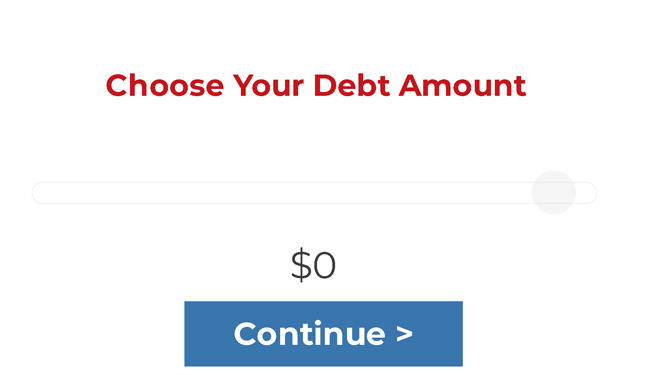The equity in your property is the appraised value of your house minus any outstanding mortgage or loan balances. In other words, it’s your stake in the property. Having equity in your property gives you a number of practical benefits, including the ability to use it as collateral for loans or lines of credit.
As your mortgage balance shrinks and/or your home value goes up, your home equity grows. For a lot of homeowners, their home equity is their most valuable asset because it can be used to get a home equity loan or line of credit.
How to build home equity
Your home equity is the market value of your home minus your mortgage balance. Your home equity can go up for a number of reasons:
Making mortgage payments
If you want to increase your home equity, one of the simplest ways is to lower your remaining mortgage balance. With each monthly mortgage payment, you are decreasing what you owe and thus increasing your home’s equity. Or, if you want to build equity even more quickly, you can make extra payments toward your mortgage principal.
Improving your home to increase its value
Your home equity is the key to your future financial security. By increasing the value of your home, you can increase your equity and put yourself on a stronger footing for the future. Home renovations are a great way to add value to your home, but be sure to do your research before starting any project.
Appreciating your property
Home prices in your area can give you some insight as to whether or not home values have been appreciating or depreciating. Appreciation is when the value of your home goes up over time and is a way for you to build equity in your home. However, there are several factors that affect how much your home appreciates, such as location and the economy, so it’s difficult to say how long you will need to stay in your home to see a significant increase in value. Looking at historical price data for homes in your area can give you a better idea of what to expect.

Making a large down payment
Paying a larger down payment on your home can increase the equity you have in the property. For example, if you make a 20 percent down payment instead of 10 percent, you will own more of the home and builds equity faster. Additionally, most lenders require a 20 percent equity stake in your home before approving a loan, so having a larger down payment can make this process easier.
How to calculate home equity
To calculate the equity in your home, you can follow these steps:
- Get your home’s estimated market value: The value of your home is not static. It can increase or decrease depending on a number of factors. To get an accurate estimate of your home’s current value, consider using an online home price estimator tool or talking to a local real estate agent. A lender may also order a professional property appraisal to determine your home’s market value.
- Subtract your mortgage balance: The amount of money you have left over after subtracting your mortgage and any other debts secured by your home from the market value of your home is what is known as your home equity.
How does borrowing from your home equity work?

If you’re looking for ways to free up cash or consolidate debt, one option you might consider is borrowing against the value of your home. As you pay down your mortgage, you’ll build up equity in your home that can be used later on for things like home equity loans or lines of credit (HELOCs).
Though you may not know it, your home equity is a powerful financial tool. By definition, home equity is the portion of your home’s value that you own outright, or have paid off. And while most people think of home equity in terms of loans or selling their homes, it can actually be used for a number of different purposes.
Pros and cons of home equity
Before you take out a loan against your equity, it’s important to understand both the benefits and drawbacks of this type of financing. Low-interest rates and long repayment terms can make a home equity loan an attractive option, but it’s not right for everyone. Consider all the factors carefully before you decide if this type of loan is right for you.
Pros of home equity loans
If you’re looking for a way to finance a large project, like a new addition to your house or consolidating debt, then you may want to consider taking out a loan against the equity in your house.
- Lower interest rates. There are many benefits to taking out a home equity loan or line of credit, one of which is the lower interest rates compared to traditional unsecured debt. This can help save you money on interest payments and improve monthly cash flow if you need to consolidate high-interest debt.
- Tax benefits. Homeowners can now deduct interest on home equity loans or lines of credit used for capital improvements, thanks to the 2017 Tax Cuts and Jobs Act. This means that if you use this money to buy, build, or substantially improve your home, you can lower your taxable income. So take advantage of this great new opportunity and save yourself some money.
Cons of home equity loans
Home equity is not the right solution for everyone in every situation. Some of the disadvantages include:
- Borrowing costs. When shopping for a home equity loan or HELOC, be sure to compare annual percentage rates (APRs). This figure includes the interest rate plus any additional fees that may be rolled into the loan. A higher APR usually means a higher interest rate, so keep this in mind when selecting a lender.
- Risk of losing your home. The debt secured by your home equity can lead to a foreclosure if you fail to make payments. If housing values drop, you could also end up owing more on your property than it’s worth. This can make selling your property more difficult if the need arises.
- Misusing the money. If you misuse the money from your home equity, you could end up in debt or worse off than before. It’s best to use home equity for things that will improve your life in the long run, like renovating your home to increase its value, paying for college, starting a business, or consolidating high-interest debt. Stick to needs versus wants; otherwise, you’re perpetuating a cycle of living beyond your means.
Types of home equity loans
If you’re looking to access equity in your home, you have a couple of options. You can either take out a loan or use a home equity line of credit (HELOC).
Home equity loans
If you have equity in your home, you may be able to take out a loan against it. Home equity loans are typically second mortgages, meaning they’re secured by your property. When you get one of these loans, your lender will usually give you one lump sum payment. You’ll then begin repaying the loan right away at a fixed interest rate. This means you’ll make the same monthly payment for the length of the loan, whether it’s five years or 15 years.
If you have a large, immediate expense, then taking out a loan with predictable monthly payments is ideal. You can budget and plan your finances accordingly, knowing exactly how much you need to repay each month.
Home equity lines of credit (HELOCs)
Home equity lines of credit, or HELOCs, offer homeowners flexibility and access to funds as they need them. With an initial draw period that is typically 10 years, homeowners can withdraw money up to their credit limit as needed. As the HELOC principal is paid down, the credit line revolves and can be used again, giving homeowners the ability to get money when needed.
When it comes to making payments on your loan, there are a couple of different options. With an interest-only loan, your monthly payment only goes towards the interest accruing on the loan.
There are two main types of HELOCs – variable rate and fixed rate. Variable-rate HELOCs have interest rates that can fluctuate, so your monthly payments may go up or down over the life of the loan. Fixed-rate HELOCs have a set interest rate but usually, come with higher initial rates and sometimes additional fees.
If you don’t repay the full amount of your home equity line of credit (HELOC) within the draw period, you’ll have to start making payments on both the principal and interest. repayment periods usually last 10-20 years. And if you use your HELOC for a qualifying home improvement project, the interest may be tax deductible.
Home equity loan vs. HELOC
| Home equity loan | HELOC | |
|---|---|---|
| Type of interest | Fixed | Variable |
| Repayment term | 5 – 15 years | 10 – 20 years |
| Payout | Lump-sun | Revolving credit |
| Type of loan | Secured | Secured |
| Best for | Debt consolidation, major renovation costs | Minor renovation costs over a number of years |
Reverse mortgage

A reverse mortgage is a type of loan that allows seniors to access the equity in their homes. With a reverse mortgage, homeowners who are 62 or older can withdraw a portion of their equity. This can be an attractive option if you need extra money in retirement and want to stay in your home.
With a reverse mortgage, you don’t have to make monthly repayments like you would with a HELOC or home equity loan. Instead, the lender pays you money each month, while you continue to live in your home. The loan must be repaid when you die, permanently move out, or sell your home.
How to find the best home equity loan
When looking for a home equity loan, it’s important to compare rates and terms from multiple lenders to get the best deal. Borrowing standards and rates can vary greatly between different home equity products, so it pays to shop around.
Most lenders request a few basic minimum requirements:
- If you want to get the best interest rates on loans, you’ll need to have good credit. Most lenders require at least 620, but if your score is 700 or above, you’ll be in an even better position to negotiate.
- The maximum loan-to-value ratio for your home equity loan should be 80 percent.
- The ideal debt-to-income ratio is 43 percent or lower.
- The ability to repay your loan is essential in order to be approved.
The bottom line
Different people will have different reasons for wanting to access equity in their homes. Some may need a large sum of cash for a one-off expense, such as a renovation or consolidating high-interest debt. Others may want to use it as a way to pay for college expenses. Whatever the reason, it is important to carefully consider all your options and shop around with multiple lenders before signing up for anything.






